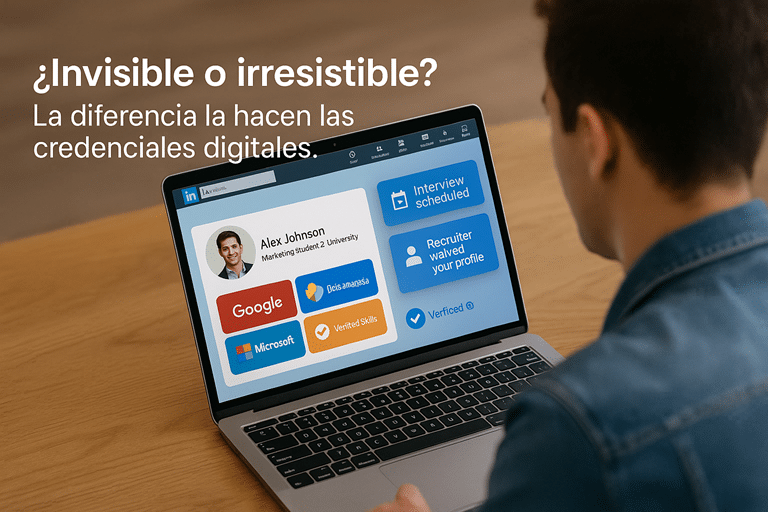The digital credentials are emerging as a green alternative that generates a sustainable impact compared to the traditional format of certificates printed on paper. This shift to digital not only simplifies processes, but also has a significant impact on conserving natural resources and reducing waste.
Less paper
One of the most notable contributions of digital credentials to the environment is the drastic reduction in paper consumption. Paper production involves the felling of trees, the intensive use of water and energy, as well as the emission of greenhouse gases. By eliminating the need to print paper certificates, digital credentials help conserve forests, reduce water consumption, and lower carbon emissions associated with paper production and distribution.
Less waste
Furthermore, the adoption of digital credentials also has a positive impact on waste reduction. Paper certificates, once delivered, often end up in the trash after having served their initial purpose. This contributes to the accumulation of solid waste and increases pressure on waste management systems. In contrast, digital credentials are completely virtual and generate no physical waste, which helps mitigate the waste problem.
Carbon footprint
Another relevant aspect is the decrease in carbon emissions related to the transportation and distribution of physical documents. Delivering printed certificates through postal or courier services involves the use of vehicles and fossil fuels, which contributes to air pollution and global warming. By opting for digital credentials, the need for physical transportation is reduced, which in turn helps reduce greenhouse gas emissions.
Why improve organizational sustainability?
- Social responsability: Organizations have a responsibility to minimize their negative impact on the environment and society in general.
- Reputation and brand: Sustainable orgs are often viewed more favorably by their customers and the broader community, which can improve brand reputation and attract more customers or, in the case of universities, students.
- Operating efficiency: Adopting sustainable practices can lead to greater efficiency in resource use, which in turn can reduce operating costs.
Improving corporate sustainability is not only ethical, but also organizationally beneficial, as it can lead to greater profitability, competitiveness and long-term stability.
The role of blockchain
Blockchain technology, used to support the authenticity and security of digital credentials, also plays an important role in reducing environmental impact. By providing an immutable, decentralized record of information, blockchain technology eliminates the need for intermediaries and reduces the amount of resources required to verify the authenticity of documents. This not only simplifies processes, but also reduces energy consumption associated with data verification.
Society is increasingly demanding the adoption of sustainable practices by organizations. Faced with this, the positive environmental impact of digital credentials is undeniable. Did you know that creating and sending a single physical certificate generates around 0,015 kg of CO2? For its part, according to data published by North Carolina State University, one metric ton of paper generates about 942kg of greenhouse gas emissions. One ton is equivalent to about 200.000 sheets of paper. The use of digital credentials drastically reduces this consumption.
By reducing paper consumption, reducing waste generation, optimizing verification processes and minimizing carbon emissions, digital credentials are significantly contributing to building a more sustainable and environmentally friendly future. Its mass adoption represents not only a technological advance, but also a commitment to preserving our planet for future generations.
Start reducing your institution/organization’s carbon footprint by creating your first recognition template at no cost to your students or employees. here.
Subscribe to blog here and receive all our content







